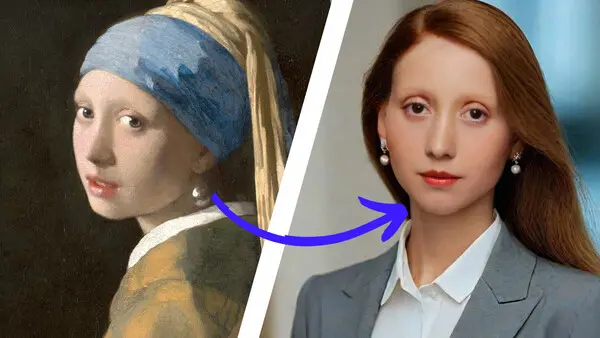Best A.I. Talking Photo Tool of 2025: Magic Hour.
In 2025, nothing we see is real. Among the more interesting new tools are AI Talking Photo services, platforms that can animate still pictures to seem as if they were speaking and match up mouth movements with words. Whether you are creating marketing content, training videos, or quick social media clips, these tools can transform static images into talking, facially emoting human-faced cartoon characters in seconds.
I’ve spent months putting the most promising through their paces to arrive at the ones that most reliably meet your needs, right here and now. Here is how I rated speed/realism, user friendliness and the creative freedom some of these offer.
These are the 8 best AI Talking Photo tools of 2025 ranked for innovation, accuracy and ease of use.
| Tool Name | Best For | Key Strengths | Starting Price |
| Magic Hour | All-in-one AI Talking Photo creation | Ultra-realistic lip-sync, voice cloning, built-in editor, fast rendering | Free / From $12 per month |
| D-ID | Conversational AI avatars | Real-time avatar chats, developer API, smooth lip-sync | From $49 per month |
| HeyGen | Business & marketing videos | Multilingual avatars, text-to-video, drag-and-drop workflow | From $30 per month |
| Synthesia | E-learning & localization | 140+ avatars, 120+ languages, subtitles, enterprise-ready | From $22.50 per month |
| DeepBrain | Enterprise training | Converts slides/text to talking videos, 80+ languages | From $30 per month |
| Pika Labs | Creative storytelling | Generative storytelling engine, artistic animations, beta access | Free (Beta) |
| TokkingHeads | Social media & casual creators | Mobile-friendly, quick animation for memes & stories | Free / From $4.99 per video |
| Elai.io | Large-scale AI video production | Batch generation, LMS integration, automation for agencies | From $23 per month |
Best AI Talking Photo Tools These Days (2025)
1.MagicHour Best All-in-One AI TalkingPhoto Tool
Magic Hour is already the best AI Talking Photo platform. It’s the most convincing lip-sync I’ve ever seen, and as a consequence it produces the most realistic facial animations I’ve experienced. With everything from voice cloning and text to speech, all the way up to face swapping – this is the ultimate content creation suite for professionals.
The interface is slick and easy to follow and all web-based so you don’t need any special hardware or software to get cinematic results. Digital marketers, YouTube creators and developers in general looking for real-life AI characters that speak for themselves are also among those with a soft spot for such a software.
Pros:
Touches including an ultra realistic jaw moving mouth and life-like eyes.
Built-in AI image correction for better vision
Voice clones and animated avatars in real time
Fast render time, not much post fx
Frequent updates and great documentation
Cons:
Internet high-speed connection for downloading HD results is required
Free plan has restrictions on export date ranges
Pricing: Free; US$12/month or up for paid plans.
My Take:
Magic Hour is ideal for people who want to make visual stories in a professional capacity. With its authenticity, performance and smooth operation it is one of those must-have study tools which you most definitely will need in 2025.
2.D-ID – Best for Chat AI Avatars
D-ID’s flagship product is creating talking avatar for conversational AI and virtual customer agents. The SDK will enable developers to bring the AI Talking Photo technology directly to their chat bots, and websites.
Pros:
Real-time avatar conversations
Developer-friendly API
High-quality lip synchronization
Great for customer service bots
Cons:
Advanced use requires premium pricing
Limited creative editing options
Pricing: Free trial, with paid plans from $49/month.
My Take:
If you’re creating chatbots or digital assistants that “speak” through photos, D-ID is one of the most solid and developer-friendly tools available today.
3.HeyGen – Perfect for Business, & Marketing Videos
HeyGen is a nice tool for businesses that produce explainer videos, brand communications clips or any large pool of internal videos. It’s AI Talking Photo avatars have multilingual voices and editable templates.
Pros:
Multilingual avatars and voiceovers
User-friendly drag-and-drop interface
Supports text-to-video workflows
Great for enterprise users
Cons:
Limited creative flexibility
Output sometimes feels robotic
Pricing: Free and paid plans from $30/month.
My Take:
HeyGen is clean and efficient, for people looking to maintain professionalism at all costs (it looks great in corporate environments).
4.Synthesia – E-Learning and Localization Editors’ Choice
Synthesia is also one of the popular AI video generation softwares, and one of the best e-learning makers’ choices. These AI Talking Photo avatars are eerily life-like and supports 120 languages with speech capabilities.
Pros:
140+ avatar options
Built-in subtitles and translations
Multi-language text-to-speech
Polished, enterprise-grade interface
Cons:
No free plan
Limited creative control
Pricing: Paid plans from $22.50/month.
My Take:
If you’re making training courses, induction videos, or multilingual content for your business, Synthesia is an excellent professional level solution.
5.DeepBrain – Ideal for Business Training
DeepBrain is a trusted platform for businesses looking to transform scripts or PowerPoint slides into believable AI Talking Photo videos. It flaunts business efficiency on the surface but does so spectacularly, in darkly comic fashion.
Pros:
Speaking in videos, not text or slides
Supports over 80 languages
Reliable for enterprise use
Fast turnaround
Cons:
Limited creative templates
Slightly formal avatar styling
Cost: Free trial; paid subscriptions from $30 per month.
My Take:
DeepBrain provides a consistent salable solution – perfect for HR teams, trainers and enterprise organizations.
6.Pika Labs – Good for Creative Storytelling
Pika Labs plays with its food when it comes to AI video production. It’s not exactly real-worldish, but its A.I. Talking Photo engine has allowed us some stylized animation techniques whether it be for storytelling or art pieces of video!
Pros:
Generative storytelling engine
Text, animation and sound in one
Creative and community-driven
Ideal for narrative short clips
Cons:
Still in beta
Stylized rather than photo-realistic
Price: Free during beta, with paid plans coming later in 2025.
My Take:
Pika Labs is a joyous little creative sandbox if you want to tell face-making stories as much as hyperreal faces.
7.TokkingHeads – For Social Media and Creative Projects
TokkingHeads is perfect for the casual creator who just wants to tinker with AI Talking Photo tech on a phone. Upload an image, overlay text or voice and the service animates it quickly for memes, stories or bite-size clips.
Pros:
Mobile-friendly and fast
Simple user interface
Ideal for short social videos
Cons:
Watermark on free exports
Not for professional productions
Cost: Free (with in-app purchases available from $4.99 per video).
My Take:
As a snappy, amusing form of social content, TokkingHeads is a fine choice. It is user-friendly and oddly effective at small-duty jobs.
8.Elai. io – Ideal for AI-Based Video Production on Your Schedule
Elai. io 2.0 is the AI talking photo combined with a further automated solution – allowing teams to generate hundreds of videos at once as algorithmic computer vision and social share functionality seamlessly converge. This tends to be popular with agencies, teachers, and online store marketers.
Pros:
– Bulk video creation
– Custom avatars
– Seamless incorporation into various learning and marketing systems
– Ideal for projects with a lot of repetition
Cons:
– Corporate vibes of the interface
– Low design flexibility
Price: From $23/month.
My Take:
Elai. io is an ideal balance of scalability and quality -– especially for teams producing high-volume talking-photo-based videos.
Why I Used These Tools
We tested all AI Talking Photo methods on the same auditory clips and screenplays. Evaluation criteria included:
Realism: If face movements were truly representative of real speech.
Ease of Use: How easy was it to create and output a final video.
Flexibility: Works with custom voices, languages and avatars.
Cost: A measure of the product’s suitable utility for its price compared to equivalent products.
Magic Hour was at the top of each and every one. It was the most realistic for animations, slick UI and creative freedom.
AI Talking Photo Market Trends
The AI Talking Photo market is growing. Here are the trends shaping its future:
Multimodal AI Integration: Tools that allow the user to integrate text, image, and voice generation directly.
Promptless Editing: Tools like Magic Hour allow text-less image and video editing.
Voice Cloning Progress: Speaking pictures can now adopt the voice’s tone, pitch and emotional color.
Live Generation: Developers are lobbying for talking avatars that generate live.
Moral Ai enforcement: New regulations are already closer to approved consent and watermarking.
FAQs – AI Talking Photo Tools What can I use my talking photo tools for?
What is an AI Talking Photo?
A photo with AI applied that makes a talking image remote. It employs computer vision, facial mapping and audio synthesis to produce realistic motion that matches spoken dialogue.
In 2025, which tool would be the best for AI Talking Photo?
Magic Hour is clearly the most lifelike and responsive. It is also good for professional creators because of its precise lip sync and expressive eye animation.
Do I have to pay for AI Talking Photo apps?
Some do , like Magic Hour’s free level, and TokkingHeads basic plan. But for watermark-free and higher quality exports, you can subscribe.
Can I use AI Talking Photo tools for commercial use?
Yes, most of the tools (Magic Hour, HeyGen, Synthesia) are okay for commercial use. If real likenesses or cloned voices are used, always check usage rights.
Are AI Talking Photos Safe and Ethical?
Reputable developers will ask for the user’s permission and there should be a visible watermark. Ethical implementation of AI hinges on protecting privacy and creative space.
Final Takeaway
The scene of AI Talking Photo is more vivid and powerful than ever. Whether you are making videos for personal, corporate explainers or storytelling-based artistic content there is an option that fits your workflow.
Best Overall: Magic Hour
Best for Businesses: HeyGen
Best for Education: Synthesia
Best for Creatives: Pika Labs
Best for Fun: TokkingHeads
Who knows where this tech is going but one thing’s for sure: as AI progresses, that line between real and fake will be blurrier than ever before. No longer are they futuristic novelties; They’re the new normal of digital communications.
Also Read–Smart Design at Sea: How Integrated Tech is Optimizing Space and Experience Onboard

